Associate Professor, Dr. Tran Thanh Nam - Vice Principal of the University of Education (Vietnam National University, Hanoi): Big but feasible ambition
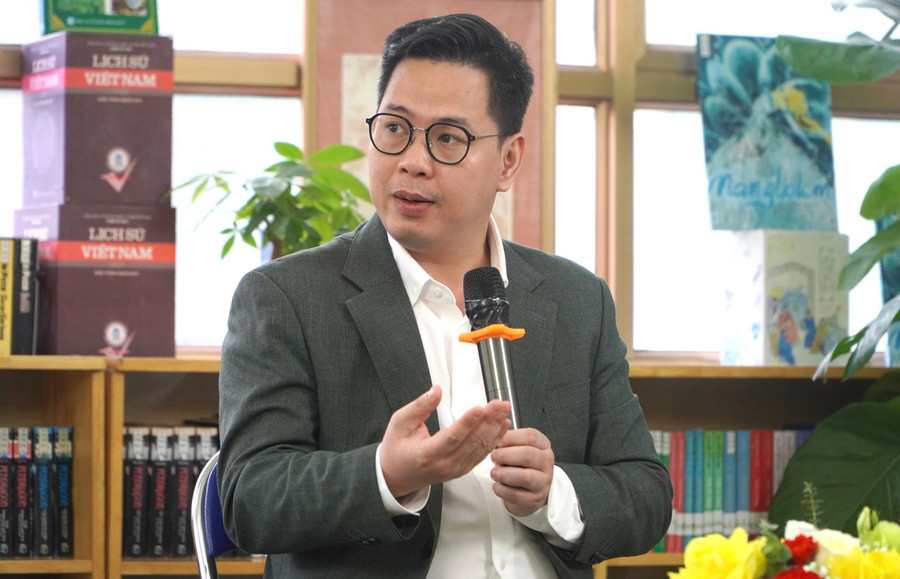
Attracting excellent lecturers from abroad is an important strategy to improve the quality of higher education, develop high-quality human resources and promote Vietnam's international integration. The goal of recruiting over 2,000 excellent lecturers from abroad by 2030, set out in Resolution 71-NQ/TW, is a great ambition, full of challenges, but has a basis and is feasible if there are fundamental changes in policies and mechanisms to attract talent.
Attracting excellent lecturers from abroad to teach and research at Vietnamese higher education institutions not only helps to reverse the risk of brain drain, but also gradually raises academic standards and the level of internationalization of the university ecosystem. International lecturers coming to work in Vietnam often bring with them modern teaching methods, international publication capacity, personal professional cooperation networks and a transparent KPI culture. They will be the “catalysts” to accelerate teaching and learning in English; co-instruct graduate students, co-lead projects and also attract international students to study in Vietnam.
In pillars such as AI, semiconductors, new materials, data science, biomedicine, energy, digital agriculture , etc., the presence of international experts shortens the technology gap, helping universities to be more closely linked to the national innovation chain.
Along with the co-teaching - co-mentoring mechanism, outstanding foreign scientists will create an apprenticeship "pipeline" for young domestic lecturers, improve the capacity to design courses in training programs according to international standards, improve the capacity to write articles for publication in high-ranking journals (Q1/Q2), mobilize international funding sources, and participate in the global scientific network.
The figure is to attract about 2,000 excellent lecturers from abroad by 2030, equivalent to about 400 people/year. Vietnam has about 200 - 250 higher education institutions, so an average of 1 - 3 international lecturers/school/year is feasible if focusing on key leading universities, with breakthrough mechanisms and competitive incentive packages.
We can refer to some leading countries in the region (Singapore, South Korea, China, Malaysia) with breakthrough policies such as flexible salaries, tax exemptions/reductions, public housing, tuition fees for children, and standard research facilities.
To compete with them, we also need to add a superior overall policy package, a flexible appointment model; focus in the short term on famous Vietnamese scientists (because of their higher ability to return home to contribute); take advantage of scientists at institutes/schools that have signed cooperation agreements and research groups that share laboratory infrastructure.
Current bottlenecks include cumbersome administrative procedures (such as work permits, visas, diploma recognition, taxes, insurance); uncompetitive remuneration framework, lack of family support packages; unattractive research infrastructure, outdated equipment; cultural, language and integration barriers, unclear promotion opportunities and career impacts. Therefore, it is a prerequisite that bottlenecks in procedures, remuneration, research infrastructure, transparent promotion must be released.
It is necessary to establish a global Vietnamese talent channel (Global Vietnamese talent) to create a one-stop policy package for academic talent; limit the processing time for a complete package of work permits, 3-5 year multiple visas, temporary residence, tax codes, international health insurance, and diploma legalization within just 2 weeks. A complete salary autonomy mechanism (by industry and by candidate's performance) with family life support mechanisms (such as housing rental subsidies, education packages for children, tax exemptions and reductions in the first 3-5 years for priority fields; job support for spouses).
Research support policies (Start-up package & core facilities) access to shared labs; competitive seed grants at the ministerial level for the first 12 - 24 months. Recruitment policies for advanced program groups such as AI and data science, semiconductors, new materials linked to centers of excellence and national projects. Along with a flexible appointment mechanism of Visiting professor for 6 - 24 months; Distinguished Adjunct (co-supervisor of PhD students, teaching courses in English, co-head of the project).
The implementation also needs to combine national brand communication campaigns (for example, the Vietnam HigherEd Talent 2030 program), deploy a fast-track mechanism to quickly review applications with clear and transparent criteria. The pilot will be focused for 12 months at 10-15 key training institutions to gain experience before expanding to the satellite school system.
This process also requires close collaboration with businesses as co-sponsors; sharing research labs, performing tasks according to the ordering mechanism and sharing intellectual property as well as the benefits of commercializing scientific and technological products. At the same time, determining KPI indicators for input, process, and results to monitor efficiency and manage risks.
When the overall policy is right and in the right place, Vietnamese universities will not only achieve their quantitative goals, but also make a qualitative leap in internationalization, research and contribution to the national innovation ecosystem.
Associate Professor, Dr. Ngo Tu Thanh - former senior lecturer at Hanoi University of Science and Technology: Selection as international football coaches and athletes
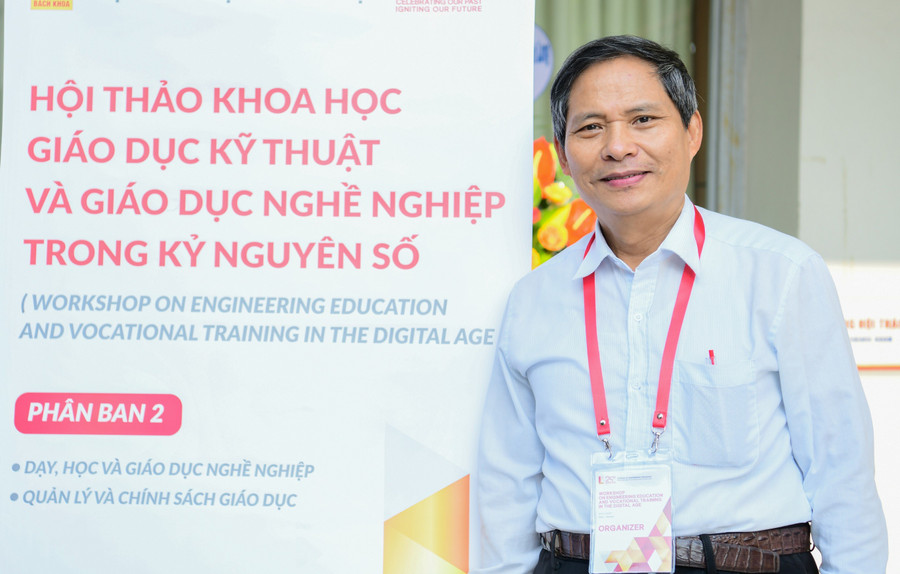
Attracting talented foreign lecturers to teach and research at domestic universities brings many benefits: Improving the quality of training and scientific research; creating an international academic environment; promoting international integration and cooperation; enhancing the prestige and position of Vietnamese universities.
The advantages of implementing the goal of recruiting over 2,000 excellent lecturers from abroad are that Vietnam has the advantage of low living costs, a stable political environment, and a central location in Southeast Asia; the Government and the leaders of the Ministry of Education and Training are ready to create outstanding and transparent incentive mechanisms to compete with countries in the region (Singapore, Thailand, Malaysia) that have attracted international lecturers before Vietnam. Besides the above advantages, some difficulties can be seen as follows:
Complicated administrative procedures: Applying for work permits, diploma recognition, and employment contracts still take time.
Lack of modern academic and research environment: Many schools do not have key laboratories and research centers that meet international standards.
Language and cultural barriers: Most training programs are in Vietnamese, there are not many English programs for international lecturers to participate easily.
Limitations on university autonomy: Not all schools have the right to make quick decisions on recruitment, salary, and international contracts.
Vietnam has been very successful in recruiting foreign football coaches. In education and training, we should also apply the selection of good foreign lecturers as we have selected international football coaches and athletes.
Accordingly, develop an internationally competitive remuneration policy with appropriate salaries and benefits, income tax exemption/reduction for international lecturers; support housing, insurance, working conditions, and research funding. Simplify administrative procedures, allowing universities to be autonomous in signing contracts and appointing international lecturers.
Invest in a high-quality academic environment, such as building research centers and key laboratories that meet international standards; increase the number of training programs in English to facilitate foreign lecturers. Create a flexible, long-term mechanism by allowing long-term contracts or flexible guest lecturer regimes; encourage the combination of "full-time recruitment" and "inviting short-term experts".
Cooperate internationally to attract resources by signing agreements with leading universities, academic funds, and international organizations to introduce and support good lecturers to Vietnam; prioritize recruiting overseas Vietnamese intellectuals (lecturers of Vietnamese origin living abroad), who are both highly qualified and easily adaptable to Vietnamese culture. The Ministry of Education and Training should have a system of statistics and annual reports on the number and quality of international lecturers; make it public to increase competitiveness and responsibility.
Ms. Nguyen Kim Dung - Lawyer, Director of Legal Affairs, British University Vietnam: Work permits should be exempted for lecturers who are PhDs.
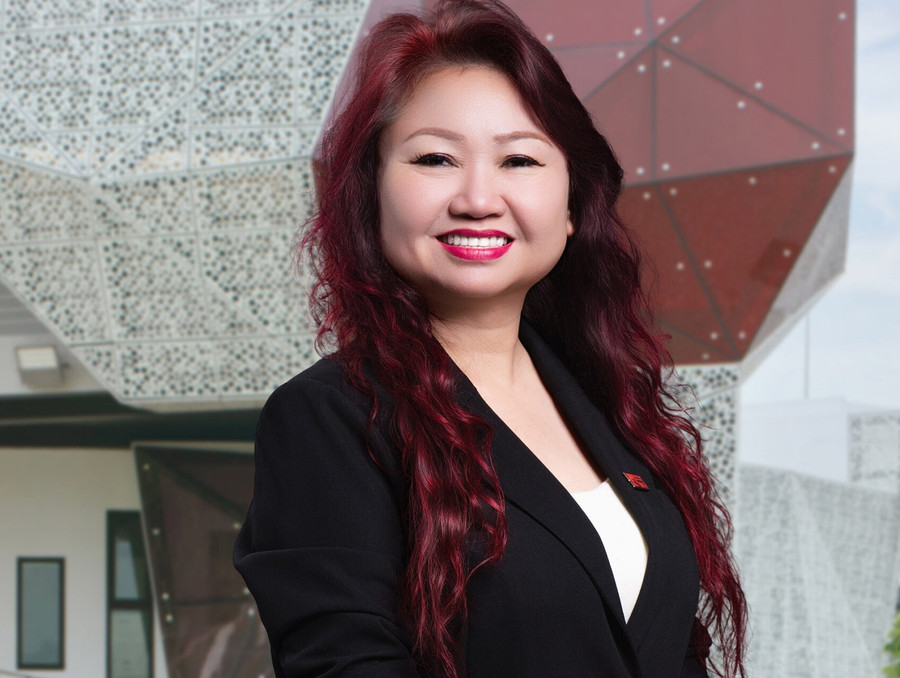
Recruiting a large number of foreign teachers and lecturers to teach in Vietnam is completely feasible if there are outstanding policies, creating favorable conditions related to work permits and degree requirements.
Currently, three sectors have a need to recruit foreign teachers and lecturers: English teaching sector; general schools from kindergarten to grade 12; and universities recruiting foreign lecturers to teach English programs in Vietnam.
In particular, in order to meet the National Foreign Language Project, it is necessary to improve the English teaching capacity of domestic teachers combined with recruiting qualified foreign teachers to teach in Vietnam. To achieve this goal, as well as attract a team of foreign teachers and lecturers with capacity and qualifications, it is necessary to soon issue the following breakthrough policies:
Proposal to exempt work permits for foreign lecturers who are PhDs and Professors when entering Vietnam to teach at higher education institutions.
For the general education sector from kindergarten to grade 12, the demand for recruiting foreign teachers to teach English and educational linkage programs is very high. Therefore, it is also necessary to consider exempting work permits for this group of teachers if they meet the prescribed criteria.
However, it should be noted that the qualifications of foreign teachers may not be fully compatible with the current qualifications of Vietnamese teachers. Therefore, it is necessary to issue specific regulations on the type of qualifications accepted for foreign teachers participating in teaching in educational cooperation programs.
The work permit exemption policy should also apply to foreign teachers teaching English at preschools, as well as volunteer teachers from abroad who come to Vietnam to teach.
For foreign teachers who volunteer to teach in Vietnam at the preschool and primary school levels, there should be specific policies, including accommodation and financial support for a certain period of time (e.g., one school year or one semester). In addition, it is necessary to create favorable conditions for final-year foreign students to come to Vietnam for unpaid internships but receive accommodation support. At the same time, public schools should be allowed to pay and settle benefits for this group when recruiting foreign teachers to teach at the preschool and primary levels.
“Currently, there are still many difficulties, such as cumbersome administrative procedures, uncompetitive remuneration and limited working environment, so to achieve this goal, it is necessary to build a “Program to attract excellent lecturers from abroad with outstanding incentives”, focusing on simplifying procedures, providing competitive salary and remuneration packages, and improving the working environment and career development opportunities for international lecturers”. - Associate Professor, Dr. Tran Thanh Nam
Source: https://giaoducthoidai.vn/thao-go-nut-that-thu-hut-giang-vien-gioi-quoc-te-post751228.html





![[Photo] Prime Minister Pham Minh Chinh chairs a meeting of the Government Standing Committee to remove obstacles for projects.](https://vphoto.vietnam.vn/thumb/1200x675/vietnam/resource/IMAGE/2025/10/06/1759768638313_dsc-9023-jpg.webp)



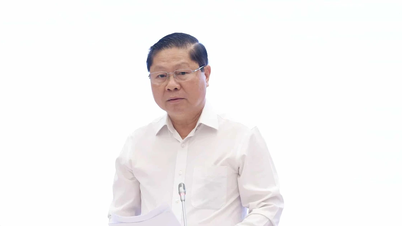
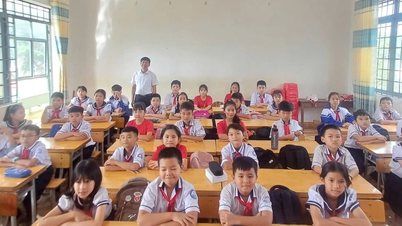
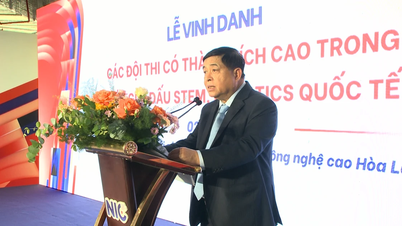

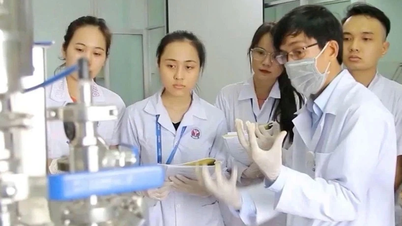






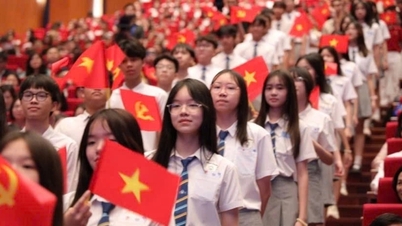
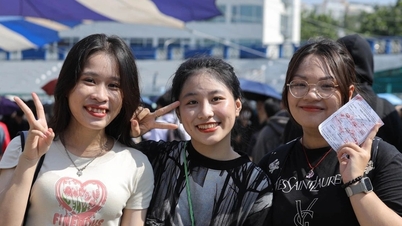




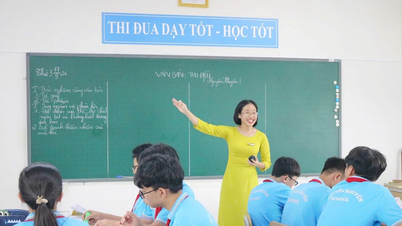
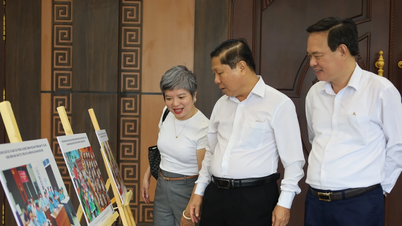
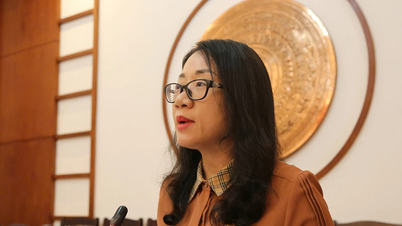
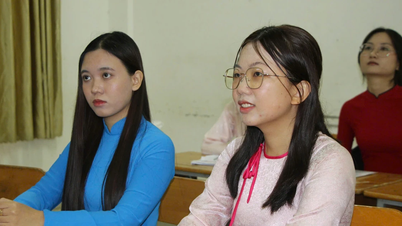
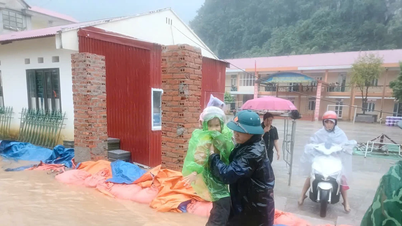
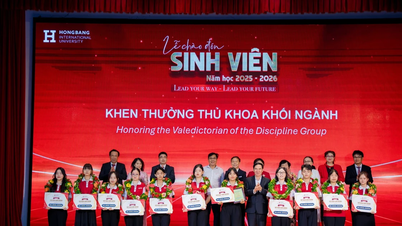




























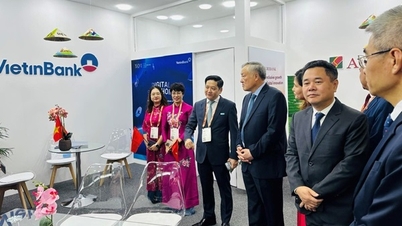
















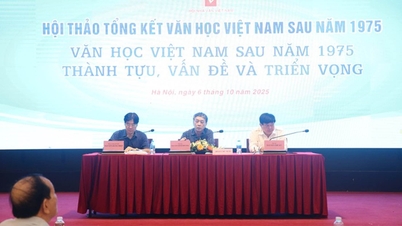




















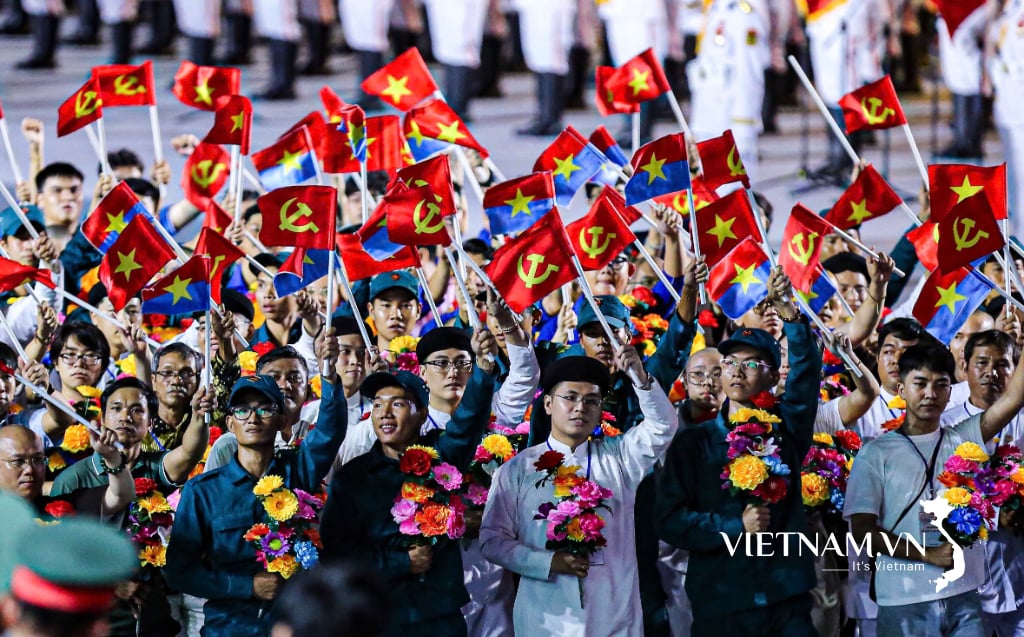
Comment (0)